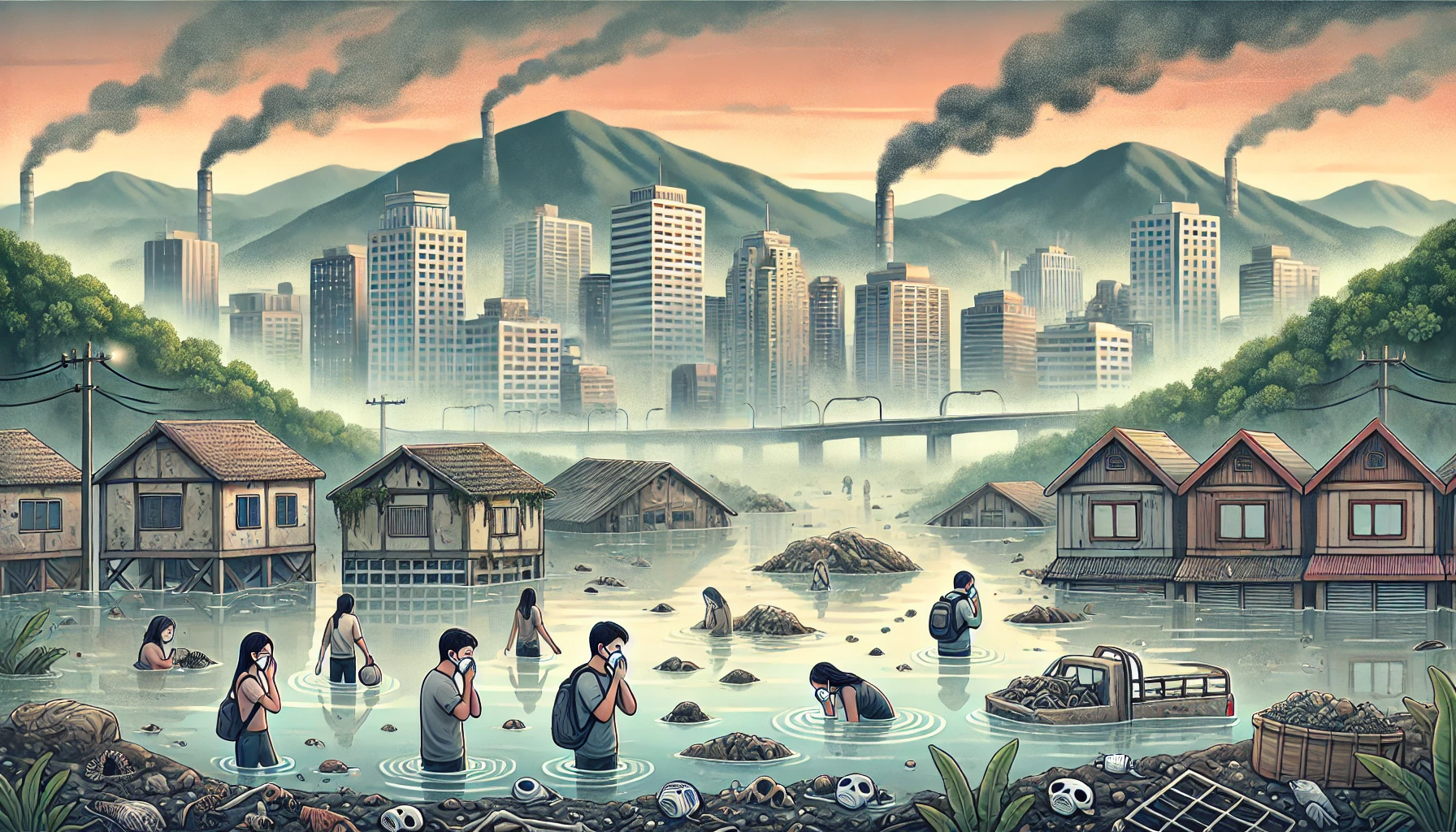Thailand’s Air Quality Declines Following Floods
Air quality in Thailand has been a recurring environmental issue for many years, but after the recent floods, the situation has worsened. According to recent reports, air quality has deteriorated dramatically in several regions of Thailand following extreme weather events. The floods, which affected large parts of the country, have not only damaged infrastructure and communities but also created an invisible yet highly dangerous health hazard: severe air pollution.
Background
Thailand has been regularly struggling with air pollution over the last few decades, particularly during the “smog” season, which typically occurs between December and April. Much of the pollution is caused by agricultural burning, industrial activities, traffic, and natural weather conditions. Northern Thailand, including areas like Chiang Mai and Chiang Rai, has been particularly vulnerable to dangerous levels of PM2.5 particles, which can penetrate deep into the lungs and cause serious health problems.
Now, following the massive floods that hit Thailand in September and October 2024, the situation has become even more alarming. The humid conditions and decaying plant material left in the wake of the floods have increased the presence of mold and other airborne allergens, while stagnant water in flooded areas has contributed to higher concentrations of harmful particles.

Health Effects
People who are already sensitive to respiratory issues have been especially vulnerable. The most dangerous airborne particles are PM2.5, which are smaller than 2.5 micrometers in diameter. These small particles can enter deep into the lungs and pass into the bloodstream, leading to a range of issues from asthma and breathing problems to cardiovascular disease and, over the long term, increased cancer risk.
Since the floods, health authorities have reported a surge in hospital admissions related to respiratory illnesses and allergies. People in the affected regions, particularly children and the elderly, have been forced to stay indoors or wear masks to protect themselves from the dangerously high levels of pollution.
How the Floods Have Worsened the Situation
What makes the situation after the floods unique is the combination of regular smog with humid air, stagnant water, and an elevated number of airborne microbes and mold spores. This combination creates an additional layer of health hazards that authorities may find difficult to manage in the short term. Waterborne diseases have already begun to spread in certain areas, and without a proper system for water purification and recovery, many communities are facing severe challenges.
Flooding also causes large amounts of chemicals, trash, and other waste to be washed out from the ground, which can further contribute to air and water pollution as these materials break down. These pollutants, combined with existing problems from industrial emissions and agricultural burning, make the situation critical.
Future Challenges and Questions
- How will Thailand address the growing climate crisis? Climate change plays a significant role in the intensification of both floods and air pollution. It is becoming increasingly clear that Thailand will need to take a more proactive role in developing both short-term and long-term strategies to protect its citizens from the effects of air pollution, which is worsened by climate disasters.
- Will the government implement stronger measures? The question remains whether the government will enforce stricter regulations on industrial emissions, traffic, and agricultural fires, or increase support for the population to combat air pollution in the aftermath of such natural disasters. Local authorities face significant challenges in balancing economic growth with environmental sustainability.
- How can local communities protect themselves? It’s also worth exploring what methods communities can use to protect themselves from both the short- and long-term effects of pollution. Access to clean air and water is a basic human right, but in many parts of Thailand, this is no longer a given.
Conclusion
Thailand now faces an increasingly complex challenge where the effects of climate change exacerbate existing environmental issues. Air quality has deteriorated following the recent floods, and the future looks bleak unless decisive action is taken. The challenge is not only to manage today’s problems but also to prepare for a future where extreme weather events become more common, and the effects of air pollution can have long-lasting consequences for public health and the country’s development.
news via inbox
stay informed






